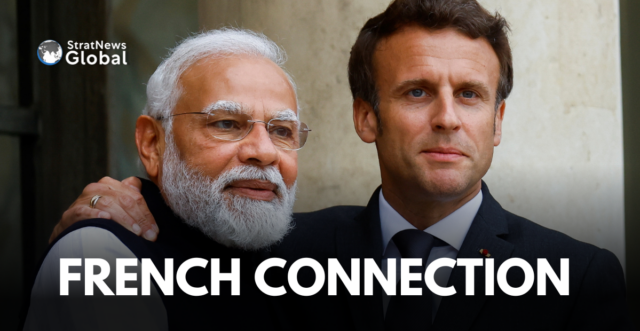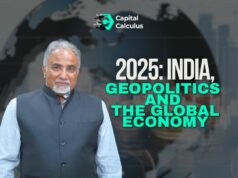As Prime Minister Narendra Modi arrives on a crucial visit to France for the Artificial Intelligence Action Summit, the spotlight is on deepening Indo-French ties in technology, diplomacy, and defence cooperation.
President of France Emmanuel Macron has emphasized the significance of this collaboration with India and PM Modi, underlining its strategic importance in an era of shifting global alliances.
Ambassador Mohan Kumar, India’s former envoy to France (2015-17), notes that the visit comes at a pivotal moment.
With geopolitical tensions rising between the US and China and the looming threat of US tariffs on European goods, the European Union is looking to diversify its strategic partnerships. “The EU may want to hedge against both the US and China, and India, too, will want to hedge against China in particular. So, it makes sense for France and, overall, for Europe to have a substantial relationship with India,” he explains.
Technology is likely to be a key driver in this realignment.
Kumar believes that amidst the dominance of American AI models like ChatGPT and Chinese counterparts like DeepSeek, there is scope for a “third way”—a collaborative Indo-European approach. This summit is expected to lay the groundwork for cooperation in machine learning, quantum computing, and data sovereignty, with a focus on sustainable energy and localized innovation.
A major agenda item in Modi’s discussions with Macron will be reconfiguring India’s defence dependency on France.
Kumar stresses the need for a stronger ‘Make in India’ component in defence deals. “For me, in defence, the outstanding issues would have to be the purchase of additional Rafale jets for our Navy and the Scorpène submarines. We can keep buying Rafales like this, but in the long run, we will have to find a way for them to start manufacturing in India.”
A potential game-changer could be a trilateral cooperation between India, the UAE, and France. This model envisions the UAE providing capital, France supplying technology, and India manufacturing defence equipment—not just for its own use, but for export to Gulf nations like Qatar.
Another crucial aspect of Modi’s visit is his scheduled trip to the International Thermonuclear Experimental Reactor (ITER), a multinational project focused on nuclear fusion energy. Kumar believes this visit is underrated in significance, noting that if the ITER model proves viable, it could revolutionize India’s energy landscape and address long-term climate challenges.
Diplomatic expansions are also on the table, with expectations of an announcement regarding the opening of an Indian consulate in Marseille. Currently, India operates only an embassy in Paris, whereas France has multiple consulates in India.
From defence collaborations to AI partnerships, from nuclear energy innovations to diplomatic expansion, Modi’s visit to France could set the stage for a deeper, more balanced Indo-French relationship.
But the pressing question remains: Can these two nations, navigating a complex geopolitical climate, forge a partnership that extends beyond traditional buyer-seller dynamics into a truly collaborative future?





